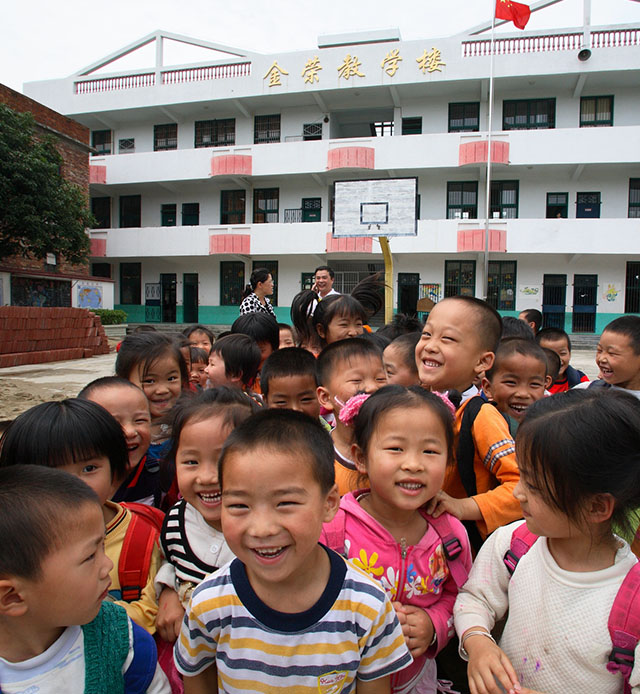We work closely with local communities to drive meaningful poverty alleviation and improve quality of life. This is done through a range of programmes that covers education, training and skills upgrade, healthcare and infrastructure development.
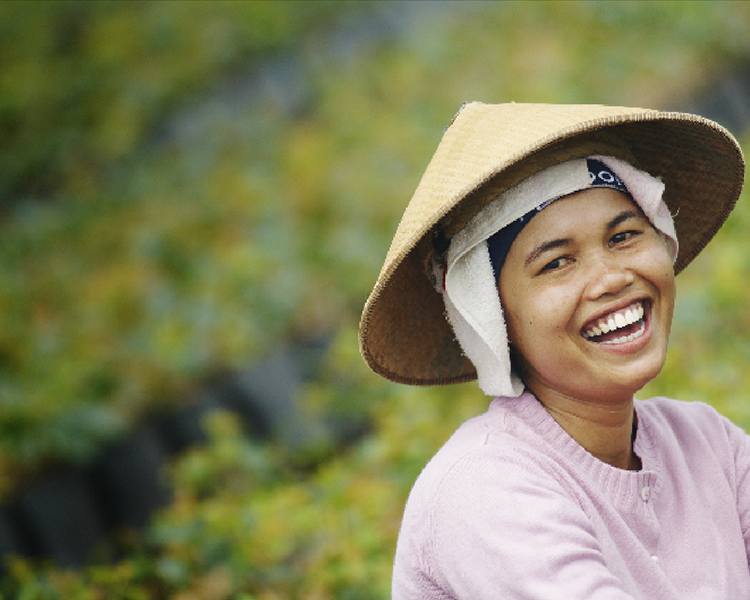
Empowerment
Through RGE’s various empowerment programmes in partnership with Tanoto Foundation, the group supports small and medium enterprises (SMEs), farmers and craftsmen in our operation areas.
Working with various corporate partners, RGE has supported more than 200 SMEs across 40 villages, providing financial and technical expertise and creating direct and indirect employment opportunities for the communities.
APRIL pioneered the Integrated Farming System, which includes training centres focused on sustainable farming and technical support for farmers. This is complemented by the SME development programme, designed to equip entrepreneurs with training and support.
Another business group, Bracell, champions a variety of programmes to raise and diversify farmer income and skill sets, while advancing the agenda of sustainability.
Healthcare
RGE supports accessible healthcare, from preventive initiatives to maternal and child health, ensuring that employees and residents in surrounding communities, most of which are beyond the reach of public services, may benefit from improved services and outcomes. Anchored in partnerships with local health authorities, NGOs and academic institutions, these efforts contribute to stronger public health systems and healthier futures. More than 20 health campaigns are organised each year to engage and educate communities on health, hygiene and nutrition. Our business groups work with local health authorities to provide free medical consultation and basic medicine.
One such initiative is APRIL’s stunting prevention programme in Indonesia, delivered in partnership with the Cita Sehat Foundation and regional health agencies. Targeting 74 villages, the programme aims to improve early childhood nutrition and development outcomes through five core pillars: community education, maternal health monitoring, improved sanitation, provision of nutritious food, and regular health screening. Notably, the initiative has helped reduce infant stunting rates to below 14%, demonstrating meaningful and measurable impact on child wellbeing.
RGE has trained more than 300 healthcare givers, raising the standard and quality of health check-ups. These collective efforts have benefitted over 150,000 people across its areas of operation.
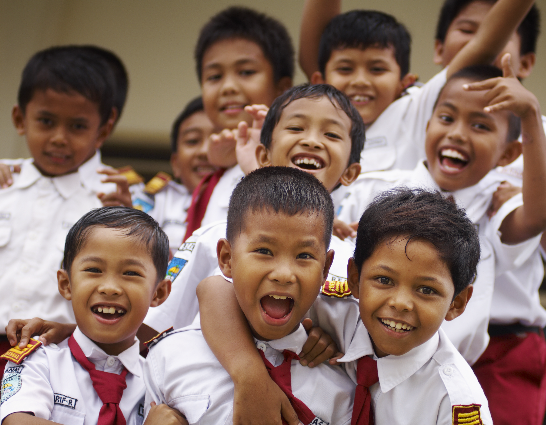
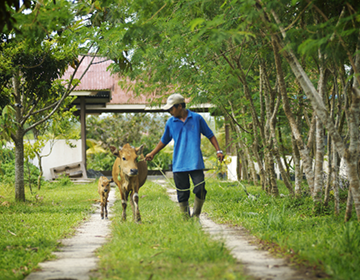
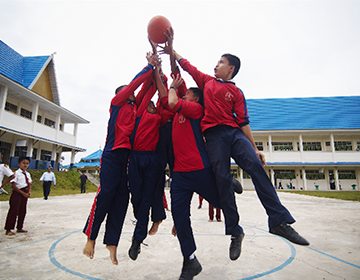
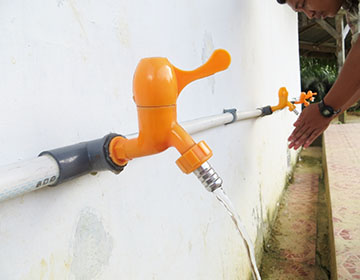
Infrastructure
RGE companies support and drive infrastructure development for communities. The provision and maintenance of clean water, electricity and sanitation facilities in communities have benefitted more than 15,000 people. Other infrastructure and amenities such as roads, bridges, places of worship, religious schools, public schools, sporting facilities and power generators are also built or provided on a regular basis.
Skills Transfer
RGE's company Asian Agri is one of the pioneers in two key national smallholder partnership programmes: the Plasma (PIR-Trans National Government Migration) scheme and the regionally supported Kredit Koperasi Primer Anggota (KKPA) schemes.The schemes cover 60,000 hectares of plantation land and around 30,000 families in 11 estates. Teams of experienced and dedicated managers provide skills upgrading and technical expertise to smallholders. Besides training in production, they also receive help in infrastructure development and guidance on complex subject matters such as the High Conservation Value Forest (HCVF) concept and the prevention and control of fire and haze.
Education
We believe that education is a powerful driver of social progress and inclusive development. Across the group, our business units collaborate with local governments, non-governmental organisations, and educational institutions to create meaningful and accessible learning opportunities for staff and members of surrounding communities. These efforts span from early childhood development to formal primary, secondary, and post-secondary education—strengthening individual potential and community resilience.
In China, Asia Symbol partnered with the Institute of Psychology, Chinese Academy of Sciences, to fund and co-develop a mental health curriculum for schools. Since its inception, the initiative has reached more than 170 primary and secondary schools in six cities, trained over 680 teachers and delivered specialised mental health education to more than 13,000 students, reinforcing the importance of emotional well-being alongside academic learning.
In Brazil, Bracell partners with the Chapada Institute of Education and Research to provide structured pedagogical guidance aimed at strengthening teaching quality and student outcomes. This partnership provides classroom-level guidance and tools to strengthen educational delivery and learning effectiveness in local schools.
Human Rights
Respecting and promoting human rights is a shared commitment across all RGE business groups. Through the Human Rights Policies adopted by its business groups, there is a collective focus on safeguarding the rights and wellbeing of individuals, including children, in both operational areas and the wider supply chain. Guided by international standards and stakeholder expectations, RGE’s business groups work to ensure that policies and practices are in place to support employees and local communities -- such as providing access to education, healthcare and essential services -- while strengthening family and community welfare. This commitment extends across sourcing, employment and community engagement, reinforcing inclusive development and the dignity of all people impacted by the business.
RGE and its business groups are committed to maintaining open and constructive social dialogue with workers and relevant stakeholders. Consistent with international human rights standards, the group engages with employees, workers’ representatives, unions and, where applicable, equivalent worker bodies to support meaningful participation on matters related to labour rights, working conditions and employee wellbeing. RGE recognises the importance of multipartite dialogue and is committed to engaging in good-faith discussions with appropriate parties in accordance with national laws and industry norms.
The Human Rights Impact Assessment (HRIA) conducted by APRIL in 2022 mapped risks and assessed human rights impacts across its operations and supply chain. Informed by the HRIA, the group prioritised key focus areas including diversity, equity and inclusion, child protection, living and working conditions, and community livelihoods. To support implementation, APRIL has established due diligence systems, and in 2024, also launched its Children's Welfare Code of Practice as part of a three-year action plan. This initiative ensures children in its estates, including those of its contractors, have access to education, healthcare and related services, anchored in five pillars of focus: care, education, protection, welfare, health, and nutrition.



